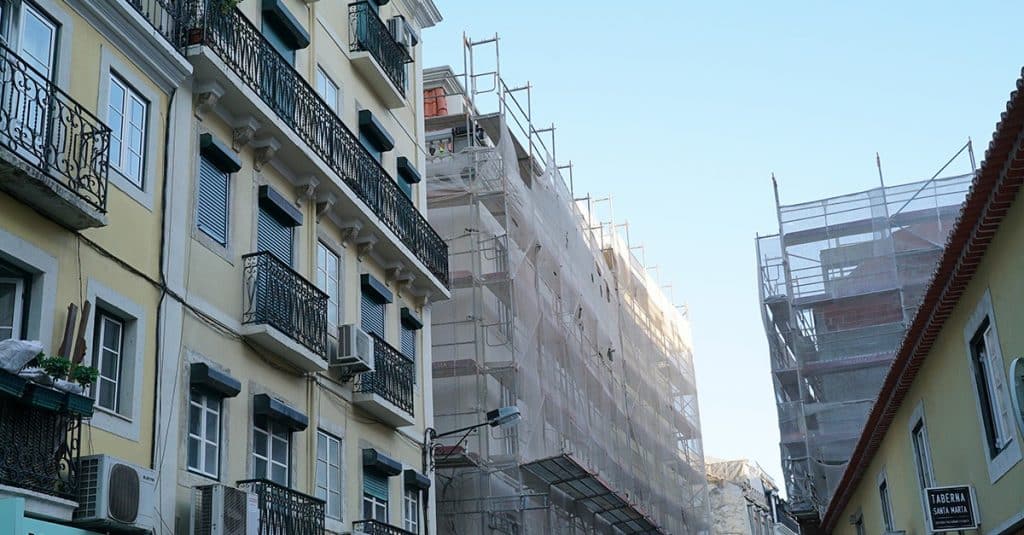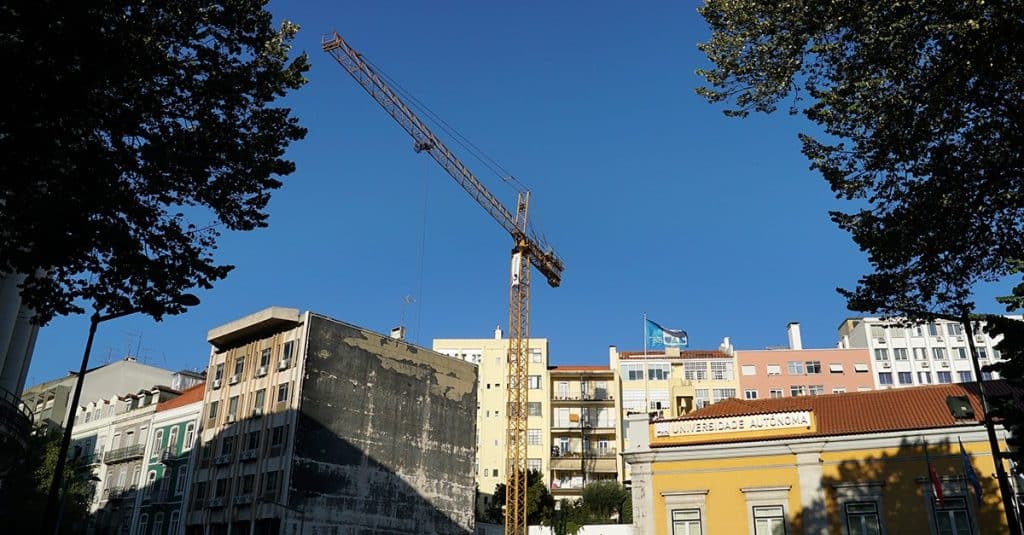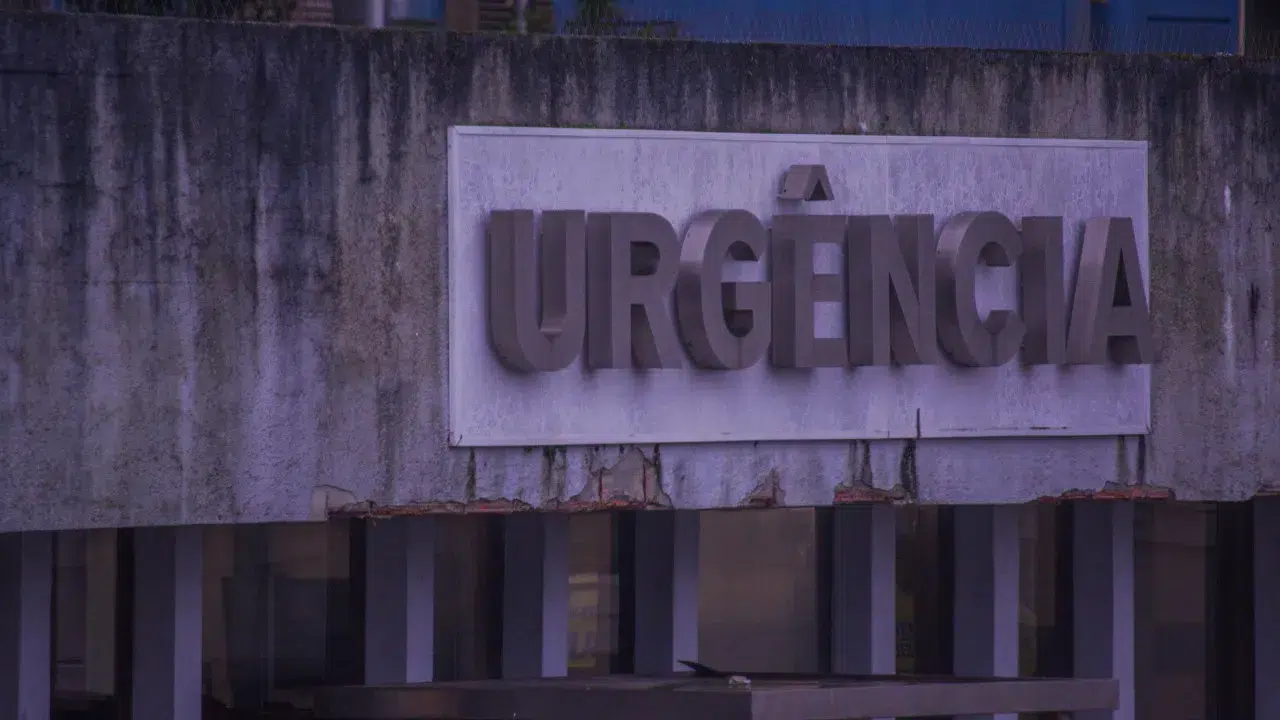What to expect from the year for the sector? Will more houses come to the market? Will they be enough? The real estate promoters have the word.
There is a problem that everyone has identified in the housing market in Portugal and that has already jumped to the center of the government’s most immediate priorities. Speeding up licensing processes, increasing the supply of houses, namely for the middle class, and boosting the rental market. These have been some of the measures demanded by the various players in the Portuguese real estate sector in the last few years in order to correct the situation, which has, however, been worsening.
What has been done and what still needs to be done in the real estate development sector? Idealista/news takes an X-ray of the market and gives a voice to those who invest and have the responsibility of developing residential projects that, even with delays, get off the drawing board, but are increasingly expensive – both for those who build and promote real estate projects, and for those who want to buy a house. Here are the results.
Housing is, for all these reasons, a subject that is getting more and more attention from the government, which has already announced that there will be a new law for the sector – to be presented at the Council of Ministers on February 16th – and has also created a ministry dedicated to the subject. The Prime Minister even anticipated that the new law will bring more land to build houses and tax benefits for real estate promoters, and that the main goal is that the State, in partnership with the private sector, starts to put more houses on the residential market.
With high inflation in the background, rising construction costs, the energy crisis, and escalating interest rates, along with the constraints that the national housing market is experiencing, the various real estate developers consulted by idealista/news are unanimous in stating that there is still a long way to go, and the final desire is always the same: to be able to put more houses on the market and offer affordable housing, with prices that can be paid by the generality of the Portuguese.
What to expect from 2023 for real estate development?
Ideas to keep in mind:
- It is crucial to increase supply in all segments of the residential market, especially for the middle class;
- Licensing? It is urgent to speed up the processes;
Dynamization of the rental market, an old and current goal; - A bet called sustainability.
A clear bet on affordable housing
Hugo Santos Ferreira, one of the most active voices in the sector, says he has no doubts that “Portugal has a serious housing problem. A problem that “has been getting worse in recent years, because little has been done to solve it. “Concrete measures are lacking”, warns the president of the Portuguese Association of Real Estate Developers and Investors (APPII), pointing out that the problems have been identified. “We need faster licensing, we need to resolve the issue of the high tax burden and in some cases double taxation, but above all we need to create ways to promote affordable housing and the rental market.
According to the responsible, only with the collaboration of all stakeholders will be possible, “in the near future, put more houses on the market”, which should not happen this year. “The effort of the sector should be channeled to affordable housing, housing for the middle class and also put the focus on sustainability, we can not wait any longer”, he adds.
“The effort of the sector should be channeled to affordable housing, to middle-class housing and also put the focus on sustainability, we cannot wait any longer”
Hugo Santos Ferreira president of APPII
An opinion that is, to a certain extent, shared by the heads of the various real estate developers contacted by idealista/news, who were challenged to answer the following questions:
- Portugal is experiencing a supply problem in the residential market. What can we expect from 2023 for the real estate development sector?
- Will enough projects come out of the paper to meet the demand, and especially in what segments?
- Will there be a halt in projects given the current economic context?
Aniceto Viegas, CEO da Avenue, considera que “o mercado necessita da oferta de habitação para todos os segmentos”, e que no mercado intermédio existe “uma maior falta de oferta de habitação em comparação com a procura do mercado”. “Esta escassez terá de ser colmatada pelo sector público e pelo sector privado”. O sector público, ou seja, o Estado e os municípios, têm um papel muito importante, porque podem ser muito mais competitivos ao terem terrenos ou edifícios em carteira que podem ser reabilitados e um processo de aprovação de licenças muito mais rápido”, adverte ele.
“O aumento dos custos de construção e os atrasos administrativos são os principais desafios que os promotores enfrentam. Cabe aos promotores encontrar soluções técnicas e construtivas para reduzir ou controlar os custos de construção. No entanto, é fundamental que haja uma sensibilização por parte dos municípios para que os prazos de licenciamento sejam normalizados, de modo a não agravar o preço de venda”, continua.

Strong impact of inflation on real estate development
Carlos Vasconcellos, founding partner of Albatross-Quantico, refers to the current economic context, marked by high inflation and rising interest rates, to predict that “a more difficult year can be expected for the lower segments of the market, where the more difficult and expensive credit and inflation reducing real wages suggest increased difficulties both to buy and to rent a house”.
“In the medium and high segments, and despite new developments being launched, demand will continue to outstrip supply, so this fact, combined with the continuity of foreigners with high purchasing power looking to live in Portugal, should keep the market quite active,” he predicts.
On Bondstone’s side, Frederico Pedro Nunes comments that in Greater Lisbon there is a “strong imbalance between demand and supply”, which “has had a significant impact on prices”. A scenario that causes new enterprises to keep on being launched “with commercial success, but that can’t answer to all the segments”.
“To achieve this it will be necessary to have a concerted effort between public and private entities to reduce and/or eliminate the context costs already identified, namely fiscal (VAT, AIMI, IMI, and IMT), and licensing deadlines, and thus allow an increase in supply at a lower cost,” points out the company’s COO, also appealing for a boost in the rental market.
Luís Corrêa de Barros, CEO of Habitat Invest, puts his finger on the same wound, stressing that the “enormous delay in licensing projects” is a factor “that has been recurrent”, being even “the most burdensome”. “Projects that should be approved within one year, take three, four, five years to be approved,” he laments.
“There is not the slightest chance that enough developments will come off the paper to meet the growing demand, and we are already seeing a halt in projects”
Luis Corrêa de Barros, CEO of Habitat Invest
Added to this problem are other more cyclical problems, such as inflation. Even so, the year 2023, “despite the unknowns, may not be an ‘annus horribilis’ for the national real estate market”, emphasizes the responsible.
When questioned about whether enough projects will be built to meet the demand, Luís Corrêa de Barros answers clearly: “There is not the slightest chance that enough projects will get off the drawing board to meet the growing demand, and we are already witnessing a halt in projects”.

“A very interesting year,” but there are calls for “prudence”
“It will certainly be a very interesting year,” says Elad Dror, CEO of the Fortera Group. The head of the Israeli real estate developer anticipates, however, “that the change in the interest rate combined with the constant increase in construction prices, along with the lack of labor, will not help the lower class in the acquisition of apartments,” not to be overlooked the possibility of seeing a halt in projects given the current economic context, “which will put even more pressure on the existing supply,” and may lead to an increase in prices.
For Cecile Gonçalves, Board Member of Grupo Libertas, “prudence” and “serenity” are words of order in 2023, and it is “expected” that the time to sell the properties will increase. “We do not foresee postponing either the construction or the commercialization of projects”, she adds.
“The change in the interest rate combined with the steady increase in construction prices, along with the lack of labor, will not help the lower class in purchasing apartments”
Elad Dror, CEO of the Fortera Group
On this subject, José Carvalho, CEO Omega Group, says that we are already “witnessing a logical stop of projects” in real estate: “We expect a containment of sales in the first quarter, which will most likely extend throughout the year, until the economic and international situation stabilizes.
Severino Ponte, CEO of Grupo Construções Vila Maior (CVM), is also of the opinion that demand will continue to outstrip supply, especially in large urban centers, and predicts that the rental market will continue to grow. “The increase in interest rates will lead to a reduction in the demand for home ownership and an increase in the demand for rental properties,” he says.

Demand for housing should remain strong in 2023
Less optimistic is João de Sousa Alves, managing director of JMSA: “We expect great difficulties this year in the real estate development sector, since construction costs continue to rise sharply and sales prices are beginning to fail to keep up with this increase, creating a worrying scenario in the short term, with some developers already presenting losses at the end of the work (price reviews during construction and sales prices with past reference values).
One thing is certain, he says, “the demand for housing will continue in all segments”. The general manager of JMSA believes that, “in general, new projects will continue to come off the paper in order to meet” the demand. About the sale prices of houses, he predicts that stabilize in new construction and fall in used properties, which will cause the “margins of developers” decrease, “and we may see a stop of projects only at the end of this year and early 2024”.
“2023 may configure itself not very encouraging, with the slowdown in demand and investment, transversal to all segments of the real estate business”
Paula Fernandes, CEO of RAR Imobiliária
Fernando Vasco Costa, general director of Nexity Portugal, also warns about the need to increase the supply in the residential segment, stressing that there will not be “enough projects to meet existing demand”. He also points the finger at the delays in licensing processes, stressing that the delay in placing projects on the market is essentially due to delays in licensing and not to the current economic context.
Paula Fernandes, CEO of RAR Imobiliária, also shows signs of having her feet firmly on the ground, considering that “2023 may not be very encouraging, with the slowdown in demand and investment, transversal to all segments of the real estate business”. It is expected, in this sense, “that investors will assume a posture of ‘wait and see’ until prices stabilize,” he predicts.

Portuguese continue to buy houses
“The lack of supply in the residential market is a problem that has existed for some time in Portugal and is still far from being solved,” says João Sousa, CEO of JPS Group. The responsible criticizes, also, “the long waiting times to obtain municipal licensing”, which puts a brake on the execution of projects. “If the licensing time is shorter there will be more houses on the market and at affordable prices.
João Sousa also reminds that even in the current economic context, “Portuguese families continue to buy houses at a good rate. The problem is that “there is greater demand from foreigners, which causes the housing stock to decrease”, being “this huge imbalance with the increase in demand for houses, which exceeds supply, which contributes to the increase in prices and makes it even more difficult to access home ownership, especially for the middle segment, which is very dependent on obtaining housing credit”.
The responsible still estimates that the year 2023 is “promising” for the residential sector: “Nothing makes me believe that there is a stop of projects due to the current economic context, because the houses continue to arrive on the market, there is still investment from players in new developments and home sales continue at a good pace.
The lack of supply in the residential market is a problem that has existed for some time in Portugal and is still far from being solved”
João Sousa, CEO of JPS Group
Alain Gross, CEO of Solid Sentinel, hits the same note, extolling the need and importance of “offering quality housing at very competitive prices”. “There is a huge demand from the middle class for affordable housing that is increasingly difficult to find in Lisbon, which has led to people moving away from the city, with all the inconveniences that this brings, particularly in terms of traffic,” he says.
According to him, inflation, the downward revision of economic growth, and rising interest rates have put additional pressure on purchasing power. “For this reason, we have to rethink our way of working and find, in collaboration with all stakeholders, the best solutions to limit as much as possible the increase in costs, while continuing to offer quality products at a good price,” he explains.
There is a huge demand from the middle class for affordable housing, which is increasingly difficult to find in Lisbon, and this has led to moving away from the city, with the inconveniences that this brings, particularly in terms of traffic.”
Alain Gross, CEO of Solid Sentinel
De SOLYD Property Developers, Gonçalo Cadete, Sócio-Gerente do promotor imobiliário, recorda que Portugal tem enfrentado, nos últimos anos, “um problema estrutural de oferta em vários segmentos do mercado imobiliário, particularmente no mercado residencial. Diz, contudo, que acredita que o contexto macroeconómico adverso que se está a viver “não será, por enquanto, suficiente para conter a procura, de tal forma que a oferta existente se torne excedentária”.
Sublinhando que o SOLYD entra em 2023 com um sólido pipeline de projectos residenciais, Gonçalo Cadete está consciente “de que o aparecimento de novas habitações continuará a ser condicionado pelo aumento dos custos de construção, a escassez de terrenos para venda e os longos processos de licenciamento”.

Luxury (and sustainable) homes in high demand
In the opinion of Miguel Cabrita Matias, Board Member of Mexto Property Investment, 2023 will be a year of slowdown in the sale of houses in the segment of buyers who rely on home loans. “On the other hand, we will see in the luxury segment and not dependent on bank credit the maintenance of high demand that has been felt by international buyers,” he anticipates, leaving a warning: “In the luxury segment, new projects will appear taking advantage of the dynamics of maintaining the interest of international investors.
In the luxury segment, new projects will appear taking advantage of the dynamics of maintaining the interest of international investors”
Miguel Cabrita Matias, Board Manager of Mexto Property Investment
Pedro Vicente, CEO of Overseas, also foresees a “slight contraction in supply in 2023, particularly in supply for nationals, where it is expected that this contraction will be more significant”. “This fact will contribute to the worsening of the housing crisis, and solutions are not in sight without public policies that involve the private sector, similar to what happened with the incentives granted for urban renewal, which have already been a success,” he adds. What may then happen this year? “Developers will tend to focus on refuge assets: premium, luxury and tourism sectors”.
José Cardoso Botelho, CEO of Vanguard Properties, indicates that the supply of houses in the country, namely in Lisbon, has decreased a lot in the second decade of this century compared to the first and considers that there is currently a goal to be met, related to sustainability: “The level of comfort required today has evolved a lot, and the vast majority of supply over 20 years old does not meet the needs. Energy certifications, among other parameters, are increasingly demanding and are causing and will cause even more (with the coming into force of the Green Deal legislation) enormous pressure on supply.
According to José Cardoso Botelho, in 2023, there will be, “once again, a demand much higher than the supply”, with the “licensing difficulties” and the “lack of valid investment opportunities” implying “a reduction in the sales volume”. However, “despite several investors reducing their investments in certain cities, there is still capital available to invest,” he reminds.
The level of comfort required nowadays has evolved a lot, and the vast majority of supply over 20 years old does not meet the needs. Energy certifications, among other parameters, are increasingly demanding and cause and will cause even more (with the approach of the entry into force of the Green Deal legislation) enormous pressure on supply”.
José Cardoso Botelho, CEO of Vanguard Properties
A view shared, in a way, by Telmo Silva, financial director of VIC Properties, who underlines that, “contrary to what it may seem, 2022 was a very good year in the residential market, both in quantity and volume”.
For 2023, due to the rise in interest rates and inflation, it is expected “a generalized cost increase in construction, which will impact the price of the entire pipeline that will now enter the market,” he assures. “On the other hand, we may have a drop in demand in lower segments, as a result of the increased difficulty in obtaining financing. Thus, it is expected that this mismatch of supply and demand, with developers charging higher prices and buyers retracting due to lack of financing, will create some pressure in this market segment.
In conclusion, Telmo Silva predicts that, even despite the current conditions, there will not be “a generalized breakdown of the market. “And it certainly won’t be in the segment where VIC Properties operates, given that some indicators have already shown more stable behavior by the end of 2022,” he concludes.








